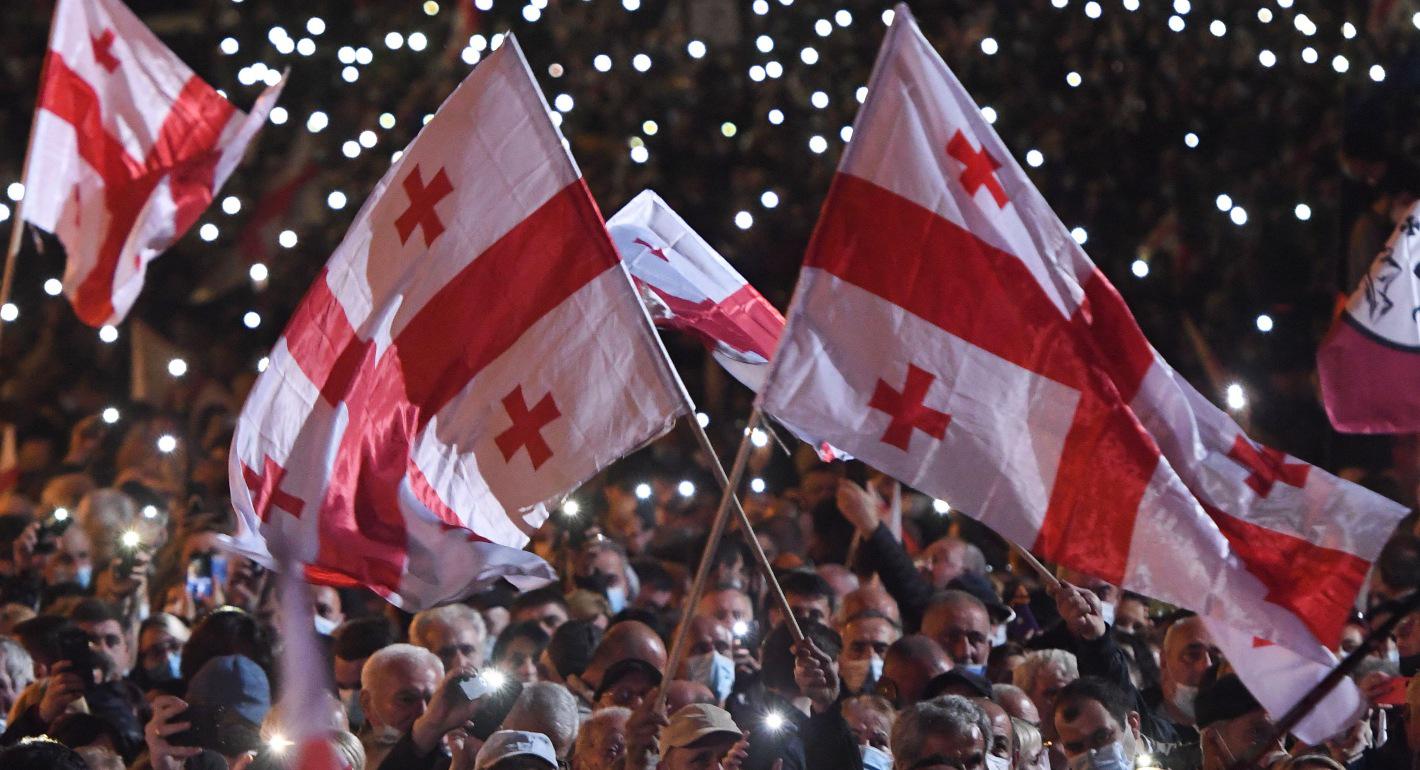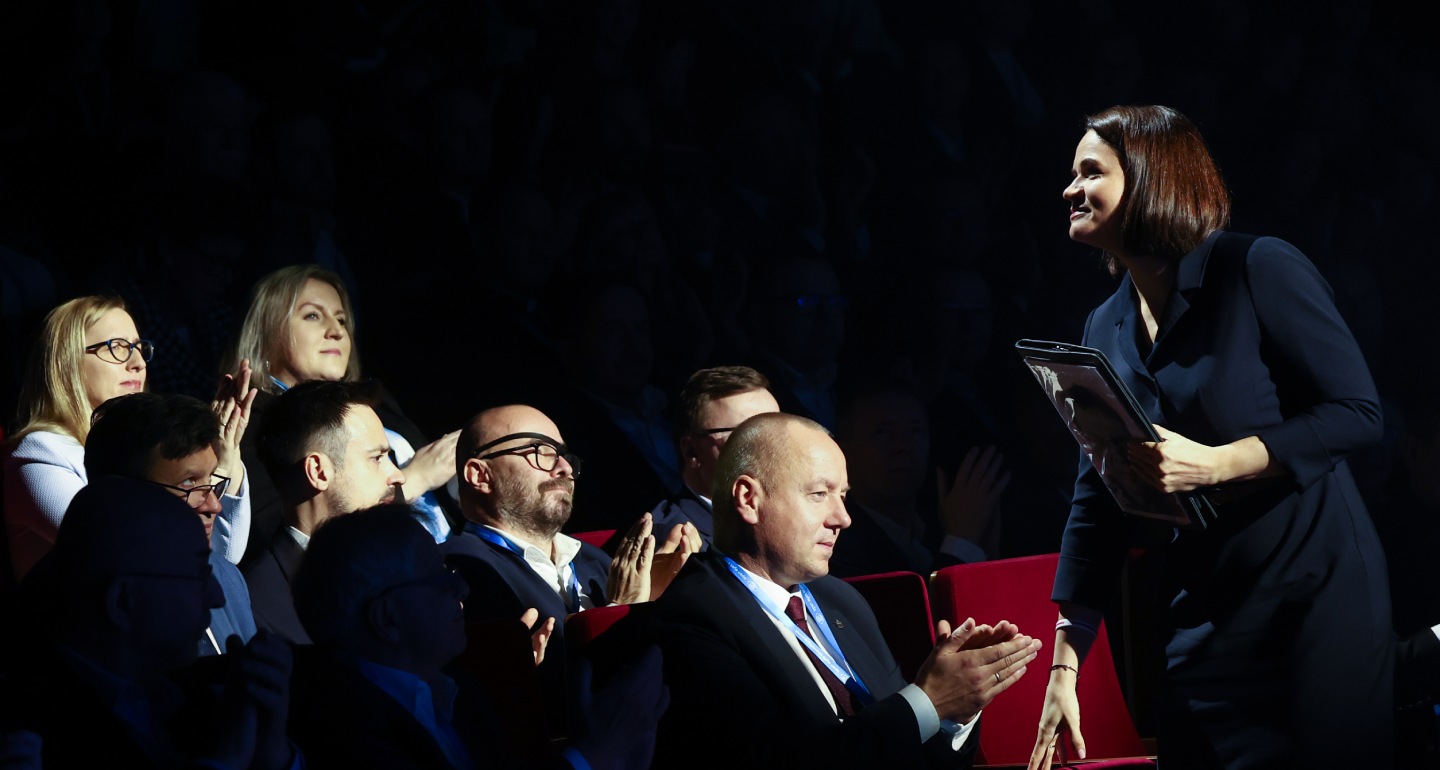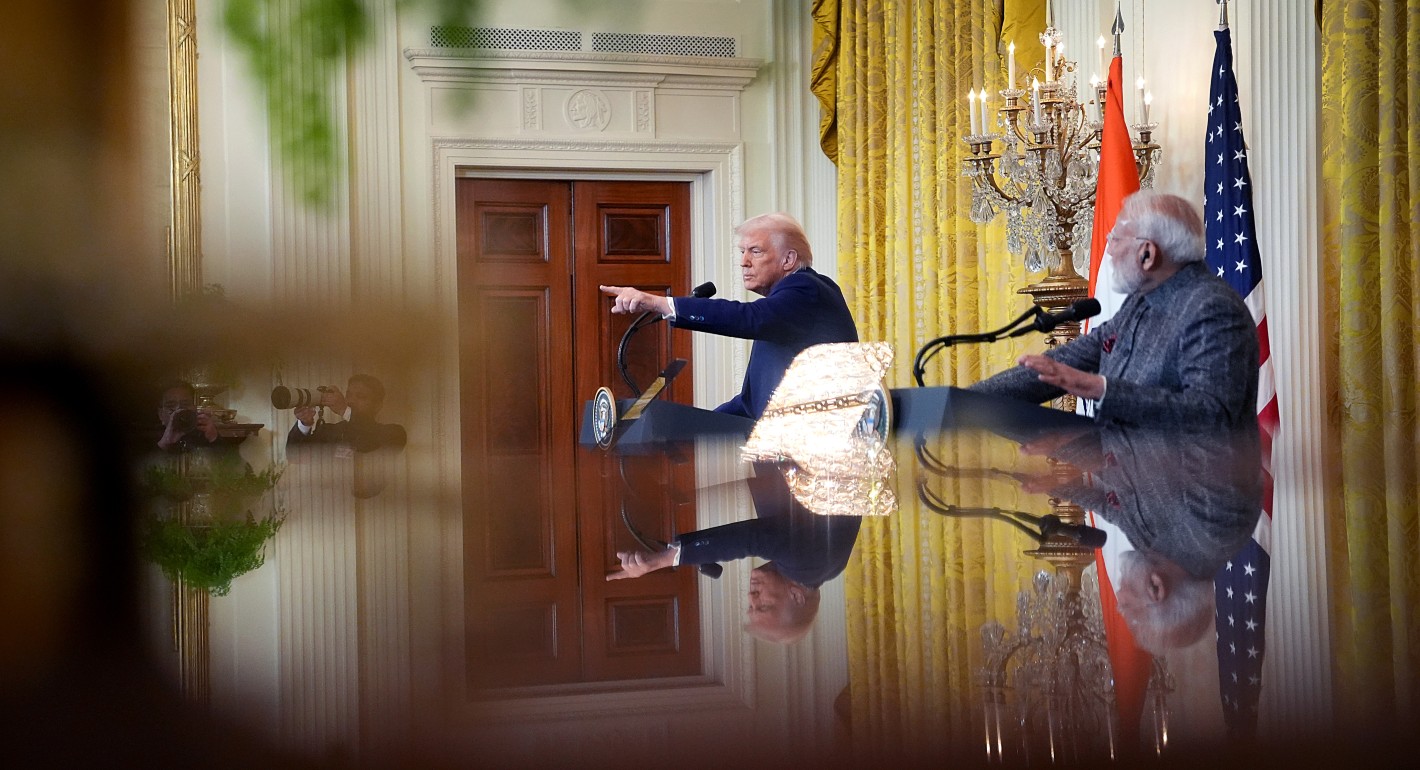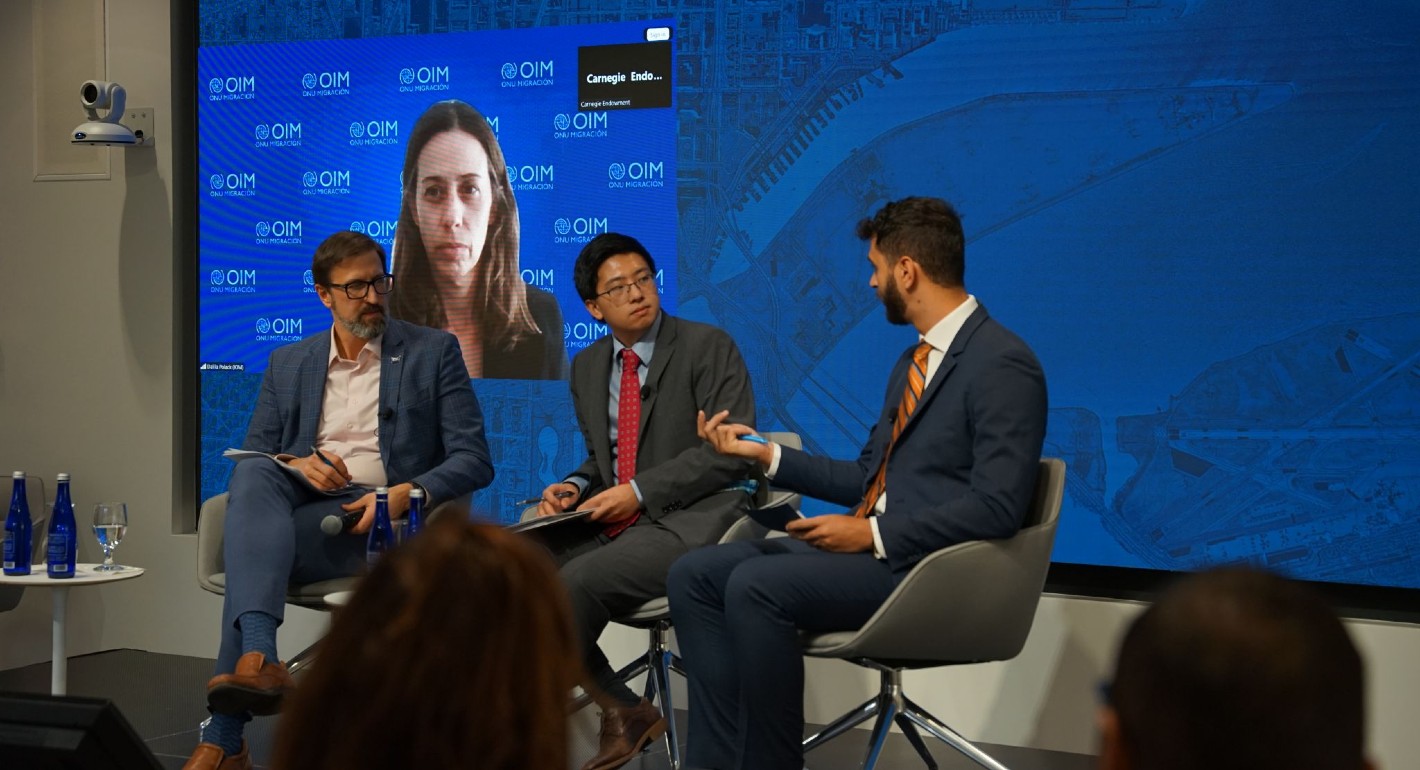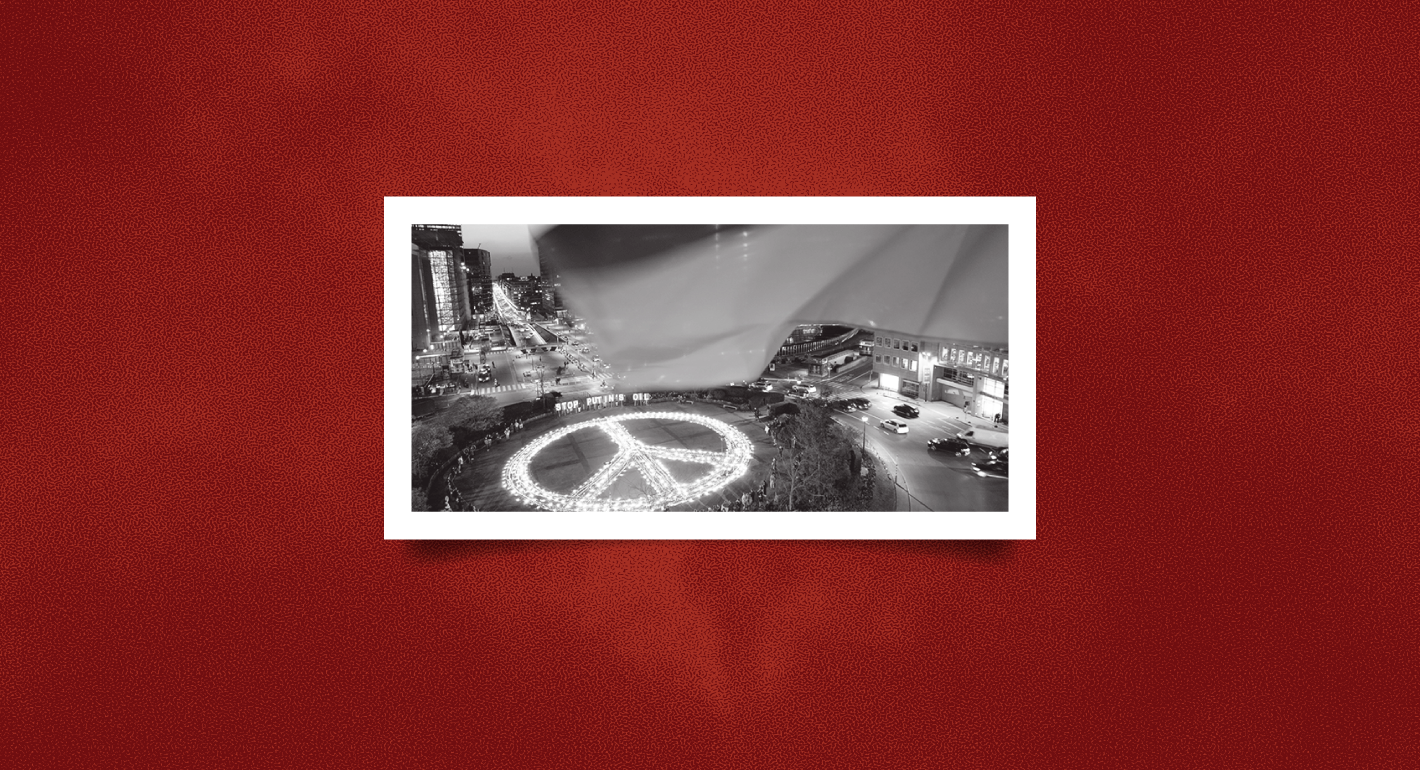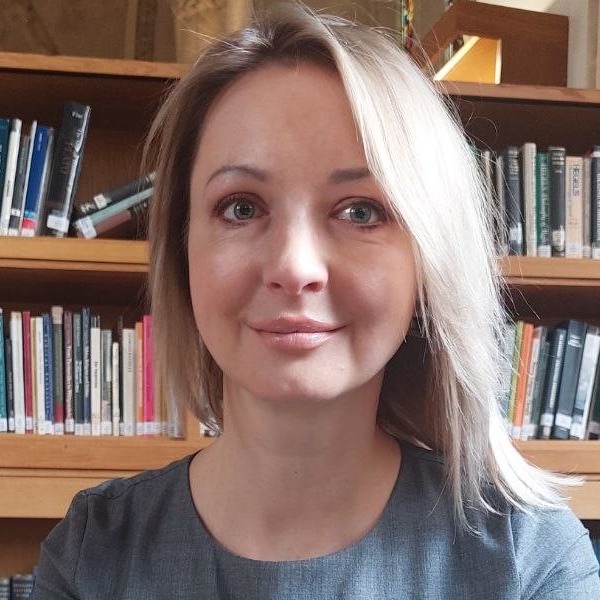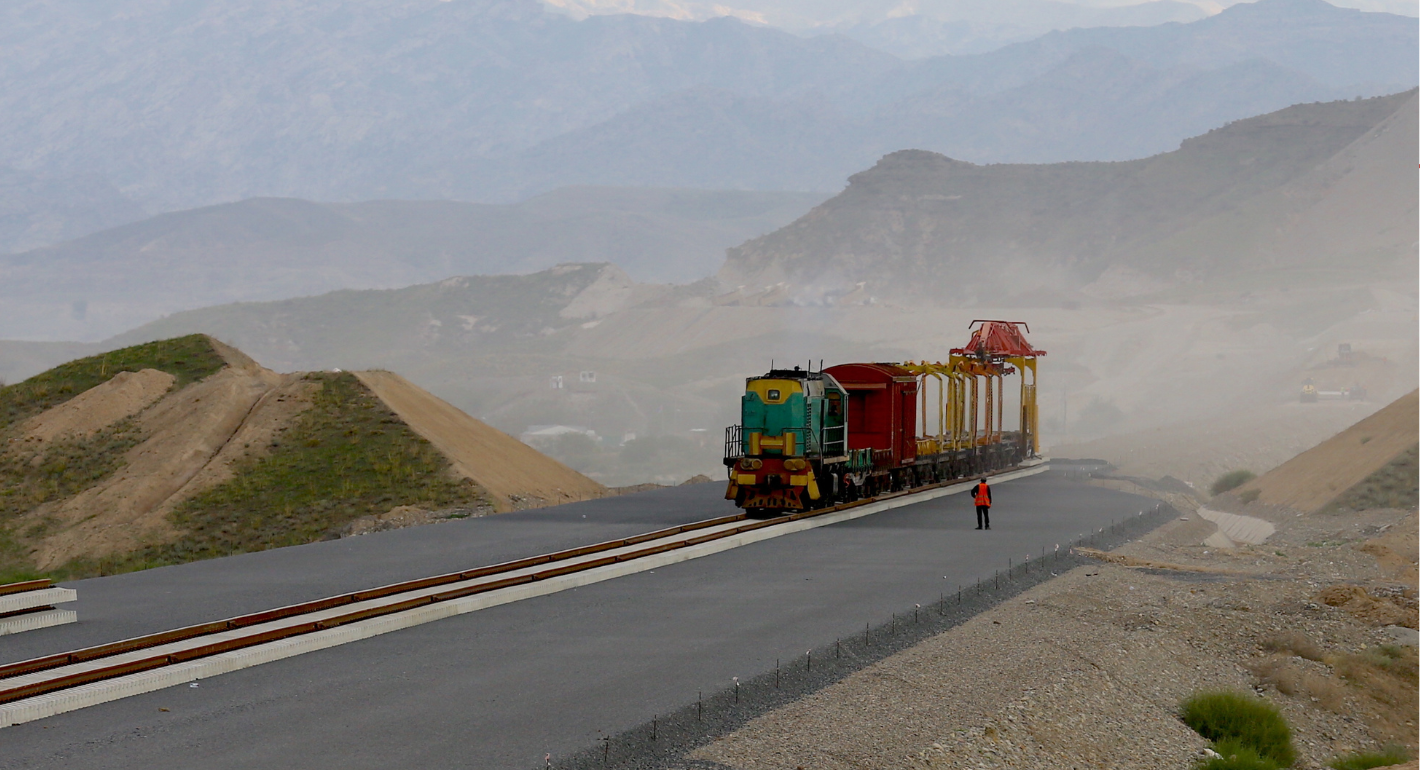Introduction
Georgia is a country characterized by sharp polarization in the way its everyday politics is conducted as well as in clashes over societal values and the direction it is taking.
Georgia’s domestic political discourse has been angry and divisive since the late 1980s, when competitive politics was allowed for the first time as the Soviet Union began to unravel. Politics and society remained largely polarized throughout the 1990s and early 2000s. For the past decade, politics has been dominated by a bitter confrontation between the two main political parties, Georgian Dream and the United National Movement (UNM), and their respective founders and de facto leaders, Bidzina Ivanishvili and Mikheil Saakashvili. Politicians from these two parties, with highly partisan television channels as their platforms, regularly use hate speech and abusive language toward one another.1 Accusations of “treasonous” actions, public slurs about politicians’ private lives, and efforts to humiliate the other side have become commonplace and contribute to the country’s democratic backsliding.
This division is a major concern for Georgia’s Western partners and is proving a serious obstacle to the country’s stated ambitions to build democratic institutions and to forge closer ties with the European Union and the United States. In 2019, Donald Tusk, then president of the European Council, told a Georgian audience: “I call on you with an earnest appeal: don’t let yourselves become divided. Only when united, will you endure.”2
Political polarization combines with societal division. Georgia is one of several countries where culture wars are taking place, between those who see themselves as defenders of traditional values and those who favor greater social, cultural, and religious diversity. There are worrying signs that this identity clash is becoming instrumentalized by politicians. In July 2021, it turned violent when protesters tried to shut down Tbilisi’s Gay Pride march.
What is meant by the term “polarization,” a phenomenon gripping many countries across the world, from Thailand to Venezuela to the United States? Jennifer McCoy and Murat Somer make some useful distinctions.3 They point out that polarization is in one sense a positive phenomenon, as it presupposes argument, debate, and policy choices put before citizens—all prerequisites of a democratic society. The danger with polarization only comes when the divisions are so bitter that they imperil the democratic process itself. McCoy and Somer use the term “pernicious polarization” to describe a condition that has become extreme and damaging for a society. They also argue that prosperity is not a mitigating factor against this extreme polarization, as it is occurring in some wealthy countries, such as the United States.
Ideological differences do not always figure in these clashes. In extremely polarized countries, the clash between rival groups can feed on itself, creating identities defined by the confrontation. McCoy and Somer argue that
the key feature of polarization is not necessarily ideological or social distance, which most conventional definitions emphasize. Rather, it is how the process of polarization simplifies the normal complexity of politics and social relations. Polarization does so by aligning otherwise unrelated divisions, emasculating cross-cutting cleavages, and dividing society and politics into two separate, opposing, and unyielding blocks.4
Georgia partially fits this template. Its culture war touches on the most important issues affecting the future of the country. But, until recently at least, this has barely been reflected in the political debate where the two main parties try to court voters by being both conservative and progressive, and by speaking the language of both Georgian traditionalism and European integration. Nor are the two main parties defined by strong differences in ideology. Rather, they mostly drive an elite-level, top-down polarization. This is a clash between “two separate, opposing, and unyielding blocks” grouped around two political parties determined to reap the benefits of a winner-takes-all political culture and destroy the other.
This paper seeks to identify the distinguishing features of polarization in Georgia and the ways its political divisions and cultural clashes are linked. It begins by looking at the historical roots of the country’s political culture. It then looks at the emergence of political polarization in its post-independence history, which can be traced back to splits in the national movement of 1989–1991. The paper then turns to the contemporary political divisions in the country. It then examines how Georgia’s culture war and understanding of what it means to be European is a source of division. The paper ends with some conclusions and tentative recommendations.
Historical Background
A paradox of polarization in Georgia is that it occurs in a society that, since the Soviet Union began to break up, has been united in the common purpose of building a new nation-state. As Nino Lejava writes in her essay for the Carnegie Europe/Levan Mikeladze Foundation “Future of Georgia” project,
Between 1988 and 1991, Georgians’ paramount political project was leaving the Soviet Union and reclaiming their country’s sovereignty. Most Georgians have remained faithful to that ideal of independence, despite repeated socioeconomic shockwaves and political instability during which only a few managed to maintain or gain economic security.5
A near-universal commitment to this national project masked many contradictions. Post-Soviet Georgians were and are divided as to how to define their nation-state, who its friends and enemies are, and which ethnic groups should be included or excluded in this national project. Stephen Jones writes of the pro-independence movement that formed in 1989: “It was secular, pro-Western, seeking democracy and membership in the European family of nations. At the same time, it was a cultural movement reaching back to the mythological past.”6
Nutsa Batiashvili also probes this phenomenon in her book The Bivocal Nation, writing about how in Georgia “nationhood is not so much imagined as a solidarity of like individuals, but it is rather voiced as a fragmentation and a constant tension between different versions of ‘us’.”7 She also observes the recurring theme in the national discourse that the Georgian nation is highly vulnerable. Reviewing school history textbooks, she identifies the unbroken theme of a small nation with an ancient civilization that has survived, thanks to heroic resistance against bigger imperial neighbors.8
This was true even in Soviet Georgia. In 1943, a Georgian-language history, sakartvelos istoria (A History of Georgia) was published, of which Claire Pogue Kaiser writes:
This was history as epic, complete with enemies and traitors, heroes and martyrs, and a defense of civilization against savagery. The theme and language of struggle (brżola) pervades the textbook’s narrative, as various Georgian tribes struggled for independence, unification, and reunification against: ‘Persians,’ ‘Arabs,’ ‘Mongols,’ ‘Tamerlane,’ ‘Iran,’ and the ‘Ottoman Empire,’ in rough chronological order.9
As this struggle to resist foreign invaders has periodically failed, this has also resulted in a blame game, a tradition of identifying traitors and domestic enemies. The language of treachery also draws on Soviet political rhetoric, which was accustomed to describing adversaries as “enemies of the people” or “fifth columnists.” Since the national movement began in the 1980s, this discourse has focused almost exclusively on Russia. While almost all sides reject any alliance or union with Moscow, there is a division between those who want Georgia to make as complete and fundamental break with Russia as possible, even if this antagonizes it, and those who see Georgia having a good relationship with neighboring Russia as pragmatic politics, even if sometimes a necessary evil.
Thus, in 1989–1991, the nationalist leader Zviad Gamsakhurdia accused the social group he called the “red intelligentsia”—cultural and educational Georgian professionals who had benefited from central Soviet subsidies—of being pro-Russian traitors. Another well-worn dispute has been over the historical role of King Erekle II, who signed a treaty with Russia in 1783 that surrendered much of Georgia’s sovereignty in return for Russian protection. Those with different views on how to manage relations with Russia accordingly have different interpretations of Erekle’s decision.10
In the current clash between the two main parties, both of which favor Euro-Atlantic integration for Georgia, Georgian Dream takes the more pragmatic approach to Russia while the UNM takes a harder line. There is extreme polarization over the level of each party’s Western commitment, and questions of tactics and of perceived geopolitical differences.
The notion of a Russian threat is a leitmotif of the political rhetoric of UNM leader and former president Mikheil Saakashvili. He described his archrival, Georgian Dream leader Bidzina Ivanishvili, as “Putin’s errand boy.”11 In 2013 he told the United Nations General Assembly that Georgia had barely survived its war with Russia five years earlier and that its independence was still threatened:
We are the only [nation] for many centuries whose statehood and independence survived, despite the full-blown attack by more than 100,000-strong Russian army, despite [being] bombed by 200 planes and attacked by the Russian Black Sea Fleet and tens of thousands of mercenaries. Our statehood and independence have survived against all these things. But let us not risk losing now in times of peace.12
In June 2019, the two sides clashed over an episode that came to be known as “Gavrilov Night.” A visiting Russian parliamentarian, Sergei Gavrilov, was invited to sit in a chair reserved by protocol for the speaker of Georgia’s parliament, from where he made a speech praising Georgian-Russian brotherhood. This angered those elements of society with strong anti-Russian sensibilities and triggered a large opposition demonstration outside the parliament building. Dozens of people were injured when riot police dispersed the protesters.
The real threat from Russia has, over the past three decades, also influenced Georgians’ attitudes toward ethnic minorities and the country’s breakaway territories, framing policies toward them purely as matters of security and relations with Russia. In the 2020 “Future of Georgia” survey, 51 percent of ethnic Georgians agreed with the proposition that “the separatist wars Georgia has been involved in since independence show that the ethnic and linguistic minorities are a potential security threat to Georgia.” Natia Chankvetadze and Ketevan Murusidze write how an emphasis on the Russian aspect of the Abkhazia and South Ossetia conflicts—accompanied by a continuing perception of Georgia as a security threat on the part of Abkhaz and Ossetians—has inhibited dialogue: “These self-perpetuating radicalized narratives shape the comfort zone for each society while re-examining and critically engaging with them evokes a fear of compromising ‘national interests.’”
Soviet and Post-Soviet Origins of Polarization
The roots of Georgia’s current state of deep political polarization arguably lie in splits within the pro-independence national movement at the end of the 1980s. Since then, strong charismatic leaders and their rivalries have shaped political life, a tendency Georgia shares with other polarized countries. Ironically, despite their fierce anti-Soviet rhetoric, their political culture was shaped by the legacy of Soviet Georgia, which had a strongly developed tradition of patronage networks rather than state institutions. Stephen Jones writes:
Distrust of the state has led to a reliance on patrons—in the economy, the civil service, and political parties—and on charisma as a source of political power. Most Georgians identify with and trust strong leaders (this is reflected by the nostalgia for Georgia’s powerful monarchs, David the Builder and Queen Tamara), not parties or institutions.13
The first such individual was the country’s first president, Zviad Gamsakhurdia. Charismatic, conspiracy-minded, and xenophobic, he was a highly polarizing figure. His authority rose as the previous regime was discredited by the tragic events of April 9, 1989, when the Soviet military brutally suppressed a peaceful demonstration in Tbilisi and twenty people, mostly women, were killed.
After this tragedy, there was a consensus at the grassroots and the elite levels around supporting independence. The authorities started a gradual transition of power, albeit informally, to the leadership of the national liberation movement. Under the leadership of Gamsakhurdia and others, a National Forum was formed with the mission to restore the country’s independence. However, a fundamental divergence of views emerged within it. One camp led by Gamsakhurdia argued that the Communists should be defeated in the Georgia-wide elections called in 1990 by the old leadership.14 The second camp advocated a boycott of the Soviet elections and the creation of an alternative authority, the National Congress.
In this split, the first seeds of the ensuing civil war were already sown, arguably causing what McCoy and Somer term a “formative rift” in modern Georgian politics.15 To abandon one’s convictions was seen as tantamount to political suicide, so rational thinking and notions of the national interest faded into the background. The Communist government was unable and unwilling to intervene. The first violence occurred, fueled by armed paramilitary groups whose backgrounds lay in organized crime. The strongest of these was the Mkhedrioni militia led by the intellectual and warlord Jaba Ioseliani.
Stephen Jones lists four factors that undermined the new national movement—some of which are still prevalent in Georgian politics today. First, personality conflicts and “splittism” divided political groupings with very similar ideological views. Second, “internally authoritarian parties based on a powerful leader” competed with one another. A third factor was aggressive tactics, “a revolutionary free-for-all, a raw struggle for power without rules, traditions, or political process. Most of the leaders inherited the Soviet habits of directives and defamation.” And, fourth, “there was no Georgian society capable of moderating party policies: the parties were created from above and there were no organized social interests or lobbies from below.”16
Ultimately, the National Forum collapsed. In its place emerged Round Table–Free Georgia, under the leadership of Gamsakhurdia, and the National Congress, led by Irakli Tsereteli and Gia Chanturia. These rival forces set about implementing their projects of taking power from the Communists. In September 1990, the National Congress was elected and blessed by Patriarch Ilia II. The new body united radical political forces with a significant part of Georgia’s scientific and cultural intelligentsia. In the meantime, however, Gamsakhurdia successfully created the image of himself as the only alternative to the Communists and gained political capital. Fearing they would lose all their informal power if he won the elections to the Supreme Soviet, the leaders of the National Congress allied themselves with the Mkhedrioni militia.
On October 28, 1990, Gamsakhurdia’s Round Table–Free Georgia won an impressive victory in Georgia’s first legal multiparty elections, with the Communists becoming a minority in the newly elected Supreme Soviet of Georgia. However, the existence of a parallel “legitimate” structure with increasing informal power in the form of the National Congress created conditions for dual power. The struggle between the two centers of power gradually intensified and radicalized. Criticism turned into hate speech and disputes became violent.
After coming to power in October 1990, Gamsakhurdia quickly alienated Georgia’s professional and cultural elite as he appointed little known and poorly qualified people to official positions. In the summer of 1991, the confrontation between him and his opponents became increasingly violent after an opposition rally was broken up. Much of the elite was now bitterly opposed to him.
At the end of 1991, fighting broke out in the center of Tbilisi. The bloody confrontation with the use of large-caliber military equipment lasted two weeks and ended with the overthrow of the government. Gamsakhurdia and his closest supporters fled Georgia. A small civil war then lasted in the western part of the country until he returned at the end of 1993. He attempted to regain power but was defeated and died in mysterious circumstances.
Georgia is still living with the legacy of this period, which saw in rapid succession the coming to power by democratic means of an authoritarian-minded nationalist leader and his violent overthrow. Seventy-six percent of respondents said the overthrow of Gamsakhurdia in 1992 was a bad thing for Georgia in the 2020 “Future of Georgia” survey. His violent removal from power is one reason why Georgians see the intolerant and xenophobic Gamsakhurdia through rose-tinted spectacles.
These events generated extreme political polarization in Georgia, and the civil war incurred enormous moral, political and historical cost. The South Ossetia and Abkhazia conflicts resulted in the de facto secession of both regions—another hefty cost of the fierce domestic power struggle.
A confrontation continued for years between “Zviadists” and Georgia’s next leader, Eduard Shevardnadze. Saakashvili, who replaced Shevardnadze in the peaceful Rose Revolution of 2003 and called his predecessor’s regime “a failed state,” partially rehabilitated Gamsakhurdia and had him ceremonially reburied. A pattern was set whereby each new leader built up legitimacy by challenging the legacy of his predecessor. As Katie Sartania writes,
Each of Georgia’s post-Soviet leaders has come to power in opposition to the previous one and, eventually, experienced a crisis of legitimacy. Change is necessary, yet experience has proved that replacing a leader without altering policy only temporarily eases the situation and, in the longer run, fosters a sense of frustration and polarization in society.17
Political Polarization Today
Over the past decade, the fight in Georgia between the current ruling party Georgian Dream and its predecessor, the United National Movement—and in particular between their respective leaders Bidzina Ivanishvili and Mikheil Saakashvili—has become a winner-takes-all clash. Since the parliamentary elections of October and November 2020, the standoff has become yet more intense. Freedom House noted in its 2020 Nations in Transit report that “polarization and radicalization of politics and the media space have become a new normal in Georgian political life.”18 More recently, observers of the 2021 municipal elections stated: “The 2 October local elections were generally well-administered but held against the backdrop of a protracted political crisis and characterized by hardened polarization.”19
In 2012, Saakashvili had Ivanishvili stripped of his Georgian citizenship, the first of many moves and countermoves between the two adversaries. After Ivanishvili’s Georgian Dream defeated the UNM in 2012, and despite the seemingly peaceful transfer of power, Saakashvili’s party and its supporters found it difficult to come to terms with defeat. Georgian Dream proceeded to “restore justice” in a fashion that bordered on political persecution of the UNM leaders. Saakashvili left the country in 2013.
In Georgian Dream’s first term, polarization was not so intense. The government consisted of a broad coalition of several parties, which gave politics a more pluralistic democratic character. However, these parties split from Georgian Dream before the 2016 elections and were not elected to the next parliament. These elections were again a binary political clash between the two main parties. In 2018, Saakashvili was sentenced in absentia to imprisonment for abuse of power.
Ahead of important local elections on October 2, 2021, Saakashvili promised to return to Georgia, saying the vote was “a referendum on ousting the Georgian Dream, and Ivanishvili from power.”20 He kept his word. Just before the election, he entered the country secretly in the container of a sea cargo ship, in violation of the law. On October 1, it was announced that he had been arrested and sent to prison. There Saakashvili began a hunger strike.
Both of the leaders have a mixed legacy. Saakashvili is remembered by Georgian society as a driver of modernization of the country and its move toward the West, but at the same time as a leader who flouted human rights, personal dignity, and property rights. He repeatedly demonized his political adversaries, referring for example to those who opposed his harsh law-and-order policies as people who had been “flushed down” into oblivion.21 Ivanishvili initially at least corrected some of Saakashvili’s excesses, but he did not keep his promise to increase the welfare of citizens. And, just as importantly, instead of fulfilling the promise he made in 2011 “to astonish Europe with the level of democracy that I will create in Georgia,” Ivanishvili did nothing to increase confidence in the electoral and justice systems.22
The ideological differences between Georgian Dream and the UNM are not great. In an exit poll in the local elections of 2021, the profile and views of voters for the two main parties were not noticeably different in terms of gender, age, education, or interest in policies. The only notable difference was that just under 60 percent of Georgian Dream voters mentioned healthcare as a priority while only 24 percent of UNM voters did so.23 Both officially advocate a pro-Western foreign policy. On issues of regional security and geoeconomics, there is an almost complete overlap of priorities.
Dustin Gilbreath and Koba Turmanidze write:
Issue partisanship, if it existed, would be reflected in divisions over what people think the most important issues in the country are. Yet, the vast majority of the public as well as the supporters of different parties will say that the main issue in the country is some variant of the same thing: the economy.24
The Georgian Dream-UNM confrontation can therefore be characterized as yet another chapter in a top-down elite power struggle. Their clash is also a competition for the economic resources that possession of power makes available in a lower-middle-income country. In Georgia, unemployment is high and the private sector is small, so the majority of those in paid employment earn their wages in the public sector and therefore are to some degree beholden to the government and the governing party. The executive commands strong economic resources.
For core supporters, especially those of the UNM, which has a longer history, loyalty to their party has crystallized into a social identity. Yet the clash of the two parties also inspires cynicism in the large part of society that is indifferent to both. The political drama played by the UNM and Georgian Dream has marginalized other parties, clearing the battlefield of any effective third force to challenge them, despite the fact that there is clearly a public appetite for such an alternative. When asked “Which party is closest to you?” in an opinion poll in July 2021, 51 percent of respondents answered “No party.”25 Only 18 percent named Georgian Dream and 6 percent the UNM. Yet, the two parties continue to capture most of the vote at elections.
Some point out that confrontation serves both parties very well. As Stefan Meister says, “Both main parties, GD and the UNM, have a vested interest in this polarization because it helps to mobilize their electorate and offers no space to competitors.”26 At the start of his political career, in an interview in October 2011, Bidzina Ivanishvili openly said that he did not believe in a middle ground and that Georgians faced a black-and-white choice between his party and that of Saakashvili. “Do not pretend that you are neither there nor here,” Ivanishvili said. He went on, “It is fundamentally important for me that polarization occurs. Not the kind of polarization that starts a civil confrontation—God forbid—but so people are able to distinguish between black and white.”27
The motivation for the two parties to portray their struggle as a binary choice for Georgians, without any other alternative, is fairly evident. The Georgian Dream does not want to compete with yet another credible political force, and the UNM wants to preserve the right to form a future government and to remain the only alternative to the Georgian Dream. This status ensures that the latter maintains the social support base and the stability of financial sources.
A new party formed by former prime minister Giorgi Gakharia, which had a better chance of competing than other opposition parties, unsurprisingly came under fire from both parties during the 2021 election campaign. Both the Georgian Dream and the UNM deployed their financial and media resources to discredit Gakharia and his party.
Thus far at least, there is one notable difference between the current political crisis in Georgia and the earlier clashes within the national liberation movement described above. The current political polarization is fierce in its polemic but is much less violent. This can be attributed to the fact that Georgia now has more developed democratic institutions. The country is in the process of social and political transformation within the framework of the EU and NATO integration programs, which are an important deterrent to escalation into violence.
The negative consequences of polarization are nonetheless to be felt in many aspects of everyday life. For nearly two years, Georgians have experienced almost permanent political tension as the parliament has not functioned properly, being boycotted by the opposition, while the judiciary has been in crisis over appointments of top judges. The media, also polarized, is saturated with content exclusively covering the vicissitudes of the political struggle, the purpose of which is to determine who will take which seat in parliament or government. Media monitors of the October 2021 local elections concluded that “the biased editorial policy of broadcasters is reflected in their negative coverage of the political entities that they dislike.”28
The almost chronic political polarization and permanent crisis plunges the population into apathy and demotivates them from participating in politics. As a result, the participatory process and faith in democratic institutions suffer. In addition, the sharp nature of the struggle for power refrains the authorities from depoliticizing the law-enforcement institutions and , ending their use for party interests. This was revealed in a recent scandal relating to the leak of alleged security-service files seeming to document widespread and long-running state surveillance of journalists, clergymen, and diplomats.29 This scandal has caused serious damage to Georgia's reputation in the eyes of Western partners as a democratic country and a reliable ally.
Meanwhile, the pressing problems of the socioeconomic well-being of the population, as well as the pandemic or the environment, are neglected. Another issue that receives too little attention is the rapid alienation of the population on both sides of the dividing line of the Abkhazia and South Ossetia conflicts. Due to the complexity and extremely delicate nature of the problem, a creative new approach from the entire political spectrum is needed in order to find mutual understanding and build trust. However, in the context of the existing political polarization, this cooperation is impossible.
Societal Clashes: Tradition vs. Modernization
Georgia is a country that experiences an intense pull in two directions—toward the claims of traditional values rooted in its ancient traditions and the beliefs of the Georgian Orthodox Church, and toward its aspiration to be a modern society that is part of the European community of nations and encourages diversity and minority rights. In this respect, Georgia is facing the kind of social polarization between conservatives and liberals already dividing Poland, Turkey, and the United States, for example. Until recently, its experience has not been so politicized as in these countries, but that may be beginning to change.
In the early years of the pro-independence movement, alongside breaking free from Russian rule, national issues loomed large, primarily the elevation of the Georgian language and the Georgian Orthodox Church in society and the reversal of a perceived demographic decline.
Parts of the Georgian Orthodox Church disseminate the message that the contemporary globalized world poses a threat to Georgian traditions. Patriarch Ilia II frequently expresses the fear that modern life is destroying precious Georgian moral values. In his Easter address for 2021, he said: “An all-out struggle is ongoing against traditional views, upbringing and morals.”30 Belief in the primacy of a Georgian ethnic rather than a civic identity for the country remains strong too. In the 2020 “Future of Georgia” survey, 50 percent of respondents agreed with the proposition that “Georgian citizens should be Orthodox Christians” while 30 percent agreed with the statement that “only ethnic Georgians should be allowed to be Georgian citizens.” There was also widespread skepticism about women’s and LGBTQ rights. At the same time, 76 percent of respondents in the July 2021 survey for the National Democratic Institute approved of EU membership and only 11 percent disapproved. There was an almost identical (74 percent vs. 11 percent) level of approval for NATO membership.
At the same time, a smaller social group consisting of the mainly urban, Tbilisi-based, pro-European proponents of modernity and liberalism espouse more mainstream liberal values. Despite being smaller in numbers, they have strong social capital and have powerful allies in Georgia’s Western partners.
These divisions stayed mostly submerged in recent years but came to the surface with the controversy over the Gay Pride rally in Tbilisi in July 2021. The government did not support the holding of the event, contradicting messages of support from Western embassies in Tbilisi. Police failed to intervene when far-right activists beat up journalists and later tore down the EU flag in front of the parliament building.
Following the violence, the government instrumentalized the societal divide and disagreed publicly with Georgia’s Western partners. Prime Minister Irakli Garibashvili adopted a majoritarian approach, claiming that “95% of our population are against holding propagandistic parade in a demonstrative manner.”31
This values clash can no longer be hidden. The Georgian Dream government has said it wants to apply for membership in the EU in 2024. It has adopted antidiscrimination legislation, as prescribed by the EU, yet it is now also in more or less open confrontation with the EU and the United States on issues such as LGBTQ rights and judicial reforms.
Conclusion and Recommendations
For three decades Georgia has been a flawed democracy. It has suffered from a vicious cycle in which weak democratic institutions on the one hand and habits of polarization and winner-takes-all politics on the other have fueled one another. Its polarized politics could now be getting worse. Polarization discredits democracy in the eyes of citizens and as a result public opinion no longer matters as a check on polarizing actors. Recent scholarship suggests that trust in political institutions has declined in Georgia since 2011.32 Jennifer McCoy and Murat Somer argue that in these circumstances the most partisan voters are the least likely to punish candidates, particularly those of their own party, for positions that violate democratic norms.33
The political situation in 2021 is dangerous for several reasons. At some point the angry political standoff, exacerbated by the arrest of Saakashvili, could spiral out of control and turn into violent confrontation. In a loud confrontation between the two main parties, the voices of moderate actors are muted and hotheads with a more radical agenda come to the fore. Over time, the latter divide society into opposing sides with waning common interests.
In parallel, societal polarization has also become more intense. Opinion-poll data show that Georgians’ stated ambitions to join the EU lag behind their understanding of what constitutes a civic and more inclusive national identity as it is broadly understood throughout most of the union—a phenomenon that Georgia currently shares with Hungary and Poland. This culture clash over what it means to be “European” is now becoming more of a political battleground in Georgia.
Although Georgia experiences serious problems when it comes to social and economic well-being, the integration of national minorities, the realization of the rights of LGBTQ communities, and the place and role of the Georgian Orthodox Church in society, as well as the absence of consensus on perceptions of modern history, the public debate on these issues is generally either instrumentalized by politicians or absent altogether. At times in 2021, the Georgian Dream government has played the culture card against the EU on social and gender issues where it believes it has the support of the public. On several occasions, most notably with the Gay Pride march, it backed the conservative side of the debate, alienating the country’s Western partners as well as the most pro-European constituency in society.
Repairing the societal split is extremely difficult and could take years, time that otherwise could be allocated for a development agenda. For many Georgians, this is the script of an unwelcome drama they have seen before.
There is no one-size-fits-all solution for getting rid of political polarization. To make progress, Georgia needs to find ways to move past its top-down personality-driven politics and allow greater participation by more citizens in public life. As Katie Sartania notes, its post-independence history has been dominated by powerful individuals who have used parties as patronage networks, clashed with each other, and created a top-down political culture.34 Writing in 2009, Ilia Roubanis likened this political culture to “pluralistic feudalism,” a system in which “politicians seem to find no strings attached to power, no social demands, no aggregated interest-articulation: in sum, a blank cheque for the duration of a presidential term.”35
This type of governance system creates a perfect breeding ground for internally authoritarian parties that are often dependent on the personal decisions of a single leader and are prone to political radicalism and polarization. Currently the two big parties enjoy the financial and media resources and networks in Georgia’s regions to sustain the system.
Georgia’s lively civil society and professional classes, who are more consensual and committed to a participatory democracy, are unable to change the political culture. Smaller alternative parties have been unable to make a breakthrough in elections, even despite changes to the rules for the 2020 elections that lowered the threshold of votes needed to enter parliament.
On several occasions, Georgia’s Western-leaning geopolitical aspiration has given the EU and the United States leverage to play a mediating and stabilizing role in Georgian domestic political crises. The peaceful transition of power from the discredited Shevardnadze during the Rose Revolution of 2003 was one such occasion. Another was Saakashvili’s decision to peacefully concede defeat after the 2012 elections. In recent times however, this leverage has weakened as the current government has openly disregarded advice from Brussels and Washington.
In 2021, the EU, assisted by the United States, intervened to mediate in the political crisis over the 2020 parliamentary elections. The opposition had rejected the results and was refusing to take up its seats in parliament. Due to the enormous diplomatic efforts of European Council President Charles Michel, representatives of most political parties signed an agreement ending the opposition’s parliamentary boycott and paving the way for further electoral and judicial reforms.36 The agreement soon fell victim to the country’s political polarization, however. The UNM did not sign the document, and then Georgian Dream withdrew from the agreement on the grounds that its main adversary had not supported it.
The government then further worsened relations with Brussels when it turned down a €75 million loan following an EU threat to cut financial assistance in response to its failure to implement judicial reforms.37 Despite the fact that Georgia needs and has always accepted such loans from the EU, the Georgian Dream government acted to suit its own agenda instead by going ahead with appointments to the judiciary that it deemed politically expedient. Decisions like this damage the country’s image as a partner, especially as the government prepares to apply for EU membership in 2024.
Georgia now faces three years before the next scheduled parliamentary elections, due in 2024, which are likely to be characterized by more tension and confrontation. Ideally, this period would be used to build public confidence in political institutions, primarily the electoral and judicial systems. Complete depoliticization of institutions is highly needed. Yet, the vicious circle of political polarization may not allow the main actors to change the dynamics.
The ongoing crisis gives extra responsibilities to the EU and to Western governments, which have been acting as de facto checks and balances on Georgia for the past two decades. The experience of the recent mediation of the president of the European Council is instructive, as it shows that the transformative power of the programs to integrate Georgia into the EU and Euro-Atlantic structures is insufficient. Tougher conditionality and stronger application of the “more for more” principle are required, with the EU asking Georgia to deliver more on its commitments to democracy before it receives assistance. For its part, the EU should not be late in providing benefits to Georgia when justified. The history of successful European integration shows that granting the prospect of EU membership is a powerful incentive for aspirant countries like Georgia to adhere to democratic reforms.
Large parts of the population are alienated by the ongoing political feuds. In the comprehensive survey by the National Democratic Institute in July 2021, 51 percent of respondents said that Georgia is not a democracy, and the same proportion said that the country is moving in the wrong direction. Only 30 percent named a political party they would vote for. Overwhelmingly, respondents named unemployment and poverty as their major concerns—a reproach to the failures of both main parties to tackle these issues.
Georgia sorely needs more mechanisms of participatory democracy that can mobilize the many citizens who are bystanders to the two-party confrontation. Yet, as Georgian Dream and the UNM are likely to continue to dominate the political field for a while longer, the risk of an erosion of democracy becomes more serious. This could herald a new potential danger: that a third party challenges their duopoly by inciting populist forces around messages of anti-elite sentiments, traditional conservative values, and socioeconomic discontents.
This paper is part of The Future of Georgia project, run by Carnegie Europe and the Levan Mikeladze Foundation, with financial support from the Government Offices of Sweden and the Finnish Ministry of Foreign Affairs. The authors are grateful to Stephen Jones, Jennifer McCoy, Murat Somer, and Paul Stronski for comments on earlier drafts.
Notes
1 “Hate Speech and Polarization in the Pre-election Period,” Transparency International, Georgia, December 6, 2018, https://www.transparency.ge/en/blog/hate-speech-and-polarization-pre-election-period.
2 “Speech by President Donald Tusk at the Batumi International Conference,” July 11, 2019, accessed at https://www.consilium.europa.eu/en/press/press-releases/2019/07/11/speech-by-president-donald-tusk-at-the-batumi-international-conference/
3 Murat Somer and Jennifer McCoy, “Déjà Vu? Polarization and Endangered Democracies in the 21st Century,” American Behavioral Scientist 62, no. 1 (2018).
4 Ibid., 3.
5 Nino Lejava, “Georgia’s Unfinished Search for Its Place in Europe,” Carnegie Europe, April 6, 2021, https://carnegieeurope.eu/2021/04/06/georgia-s-unfinished-search-for-its-place-in-europe-pub-84253.
6 Stephen Jones, Georgia: A Political History Since Independence (London: I. B. Tauris, 2013), 47.
7 Nutsa Batiashvili, The Bivocal Nation: Memory and Identity on the Edge of Empire (London: Palgrave Macmillan, 2018), xviii.
8 Batiashvili, The Bivocal Nation, 36–44.
9 Claire Pogue Kaiser, “Lived Nationality: Policy and Practice in Soviet Georgia, 1945-1978” (PhD diss., University of Pennsylvania, 2015), 62.
10 Batiashvili, The Bivocal Nation, 173–189.
11 Liz Fuller, “Georgia Vote Emerges as Proxy Battle,” RFE/RL Caucasus Report, October 6, 2016, https://www.rferl.org/a/georgia-elections-proxy-battle-saakashvili-ivanishvili/28036068.html.
12 “Saakashvili’s Speech at the UN General Assembly,” Civil Georgia, September 26, 2013, https://civil.ge/archives/186792.
13 Jones, Georgia, 21.
14 The Baltic Soviet republics used similar tactics. Using the “legitimate” Soviet institutions and laws, they managed to seize power from the Communists.
15 Jennifer Mccoy and Murat Somer, “Toward a Theory of Pernicious Polarization and How It Harms Democracies: Comparative Evidence and Possible Remedies,” Annals of the American Academy of Political and Social Science 681 (January 2019), available at https://journals.sagepub.com/doi/pdf/10.1177/0002716218818782.
16 Jones, Georgia, 38–39.
17 Katie Sartania, “Struggles and Sacrifice: Narratives of Modern Georgian History,” Carnegie Europe, April 27, 2021, https://carnegieeurope.eu/2021/04/27/struggle-and-sacrifice-narratives-of-georgia-s-modern-history-pub-84391.
18 “Nations in Transit 2020: Georgia,” Freedom House, accessed December 7, 2021, https://freedomhouse.org/country/georgia/nations-transit/2020.
19 “Statement of Preliminary Findings and Conclusions,” International Election Observation Mission report, OSCE, accessed at https://www.osce.org/files/f/documents/f/d/499468_3.pdf
20 “Saakashvili Says UNM Shall Sign Agreement after Melia Leaves Prison,” Civil Georgia, April 20, 2021, https://civil.ge/archives/414386
21 Salome Asatiani, “Georgia: Failure to Communicate Dogged Saakashvili’s First Term,” Radio Free Europe/Radio Liberty, December 25, 2007, https://www.rferl.org/a/1079297.html
22 Thomas de Waal, “Georgia’s Political Shake Up: Enter the Oligarch,” National Interest, October 27, 2011, https://carnegieeurope.eu/2011/10/27/georgia-s-political-shake-up-enter-oligarch-pub-45859.
23 Edison Research/Formula Exit Poll in Georgian municipal elections, October 2, 2021, as supplied to authors by Edison Research.
24 Dustin Gilbreath and Koba Turmanidze, “Are Georgian Voters Polarized?,” CRRC Policy Bulletin, Caucasus Research Resource Center Georgia, October 2020, https://civil.ge/wp-content/uploads/2020/10/Polarization-brief-6Oct2020.pdf.
25 “Public Attitudes in Georgia: Results of July 2021 Telephone Survey,” National Democratic Institute, 2021, https://www.ndi.org/sites/default/files/NDI%20Georgia%20-%20Poll%20Results%20-%20July%202021%20Poll%20-%20ENG%20-%20FINAL%20%281%29.pdf.
26 “Georgia’s Political Crisis: Actors and Instruments of Polarization,” Caucasus Analytical Digest, Heinrich Böll Stiftung, September 2021, https://css.ethz.ch/content/dam/ethz/special-interest/gess/cis/center-for-securities-studies/pdfs/CAD123.pdf.
27 “Ivanishvili Talks About Political Plans, Country Planning, Foreign Relations and Personal Issues” [in Georgian], Civil Georgia, October 21, 2011, https://old.civil.ge/geo/article.php?id=24679.
28 “Study and Research on Election Media Coverage for the 2021 Municipal Elections in Georgia: TV News Monitoring Preliminary Report 5 July - 25 September 2021,” Georgian Charter of Journalistic Ethics, 2021, http://mediamonitor.ge/uploads_script/accounts/doc_eng/11._GSJ_-_TV_NEWS_ENG_09.2021.pdf.
29 “Ambassadors Raise ‘Grave Concerns’ Over Alleged Spying In Georgia,” Radio Free Europe/Radio Liberty, October 4, 2021, https://www.rferl.org/a/georgia-diplomacy-spying-/31492690.html.
30 “Georgian Church Orthodox Leader on Surrogacy, Family and the EU,” Civil Georgia, January 7, 2014, https://civil.ge/archives/123428.
31 “95% Against Propagandistic Parade,” Civil Georgia, July 12, 2021, https://civil.ge/archives/431658.
32 “Analysis: Institutions Need to Replace Personality in Georgian Politics,” O-C Media, January 14, 2019, https://oc-media.org/features/analysis-institutions-need-to-replace-personality-in-georgian-politics/.
33 Jennifer McCoy and Murat Somer, “Overcoming Polarization.” Journal of Democracy 32, no. 1 (January 2021).
34 Sartania, “Struggles and Sacrifice.”
35 Ilia Roubanis, “Georgia’s Pluralistic Feudalism: A Frontline Report,” OpenDemocracy, July 3, 2009, https://www.opendemocracy.net/en/georgia-pluralistic-feudalism/.
36 Georgi Gotev, “Michel’s Mediation in Georgia Revealed,” Euractiv, April 21, 2021, https://www.euractiv.com/section/eastern-europe/news/michels-mediation-in-georgia-revealed/.
37 Tornike Mandaria, “Georgia Turns down 75 million euros from the EU,” Eurasianet, September 1, 2021, https://eurasianet.org/georgia-turns-down-75-million-euros-from-the-eu.
